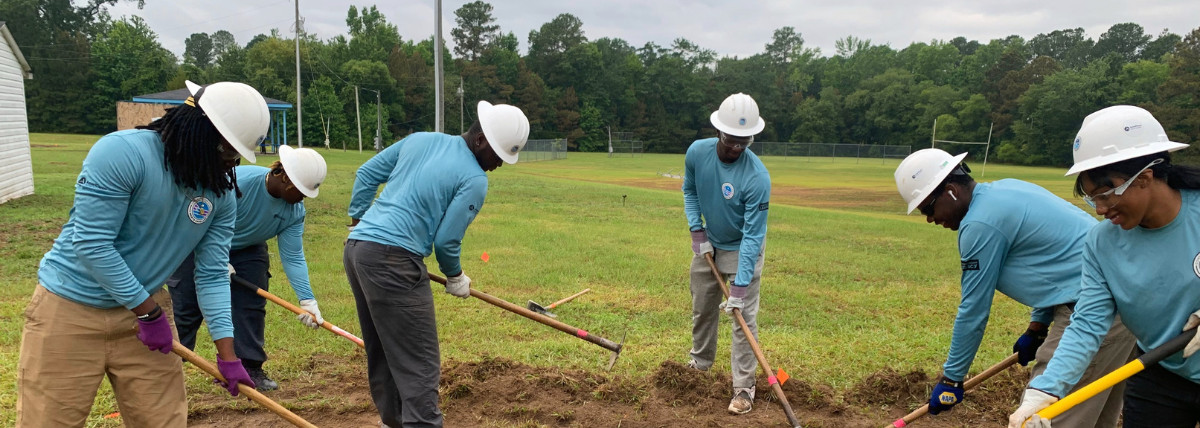Positioned along the Tar River in Edgecombe County of Eastern North Carolina, Princeville is a historic community that is built on the will to thrive.
Princeville has been flooded numerous times due to its low-lying topography, most recently during Hurricane Matthew in 2016.
There is perhaps no place more emblematic of where climate, equity and community intersect. Princeville’s history is rich, and its community is proud of its resilience to overcome. This is the first town established by Blacks in the nation. Formerly enslaved people gathered at Freedom Hill, a rise along the river banks, and, after hearing the Emancipation Proclamation, began carving out free lives as a community in 1865. Built on this foundation of perseverance, town leaders were ready to fight to keep their homes safe from a new threat - climate change.
CTNC has spent the last four years building trusted relationships with the community leaders of Princeville. We started by offering support for an expanded flood resilience plan that NC State University’s Coastal Dynamics Design Lab had begun. Town officials affirmed the desire for this approach, given their trust in NC State’s ability to listen first and design second.
Princeville Floodprint
That first investment resulted in the Princeville Floodprint, a guide for how the town can better live with the impacts of flooding even as it looks to expand to higher ground. Resilience in this vision encompasses working with natural systems to handle flood water better. Resilience also prioritizes protecting and building ongoing connections to the historic center of the town, even as 141 acres of expansion lands on higher ground are developed. The Floodprint then brings together environmental, economic, and social needs in a more holistic approach.
Princeville Elementary Water Management Project
Based on this town-approved blueprint, CTNC began assembling stages of work that could be funded and implemented soon. A National Fish and Wildlife Foundation/Wells Fargo Resilient Communities grant launched the first phase, focused on where its elementary school and adjacent housing form the town’s hub. Hiring local youth, Conservation Corps NC crews created rain gardens around the school and then a nature trail from the school toward the town’s history museum. CTNC also provided an AmeriCorps member to support the historical connections between the town’s natural and cultural history.
Justice for Climate Project
The next year, Princeville received international funding for Phase II from the Commission for Environmental Cooperation, a government collaboration spanning Canada, the US, and Mexico under a new Environmental Justice for Climate grant program. We were the recipients of one of only five such grants in the US. This project was centered at Heritage Park, where Conservation Corps NC youth built out trails, rain gardens, and plots for benches and exercise equipment. CTNC and our NC State partners are coordinating with the town on implementing this phase of the Floodprint to include trees along the town’s main street and additional wetlands and gardens in bought-out properties. CTNC is also supporting an AmeriCorps member to facilitate the town’s efforts in providing greater sources of fresh foods for the community.
The story continues in Princeville. Read about the ongoing developments with this project and the results of this work.

